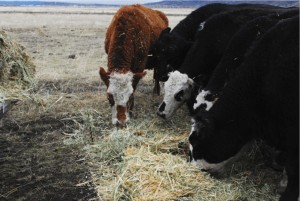Creswell, OR – On a crisp Monday evening in Creswell City Hall a small group of strangers gathered together with the charge of establishing the vision for the City of Creswell’s economic development. While some of us had met before and spoken to each in other times and places we gathered with the hope of finding common ground and creating an environment that encouraged free and open expression of ideas and feelings. We were there to talk about the people of Creswell and even more than that we wanted to give the residents of Creswell a voice. A voice that would speak to the desires of the community in order to ask and answer the questions: What does being ‘open for business’ mean? What does it look like? How do we follow-up with the community on these questions? What does community engagement look like in Creswell?
First meetings can be difficult and our CPW team accepted the challenge and sought to make an agenda that would allow for the conversation to begin. We did not want to inundate the project advisory team with numbers and definitions. Don’t get me wrong we were prepared to answer as many of the questions the advisory team asked but we wanted to engage them not bore them with lecture. And from the discussion hat unfolded we were a hit. We saw the challenge and met it head on through proper preparation and remembering that this project is about people. It is about a community of professionals, entrepreneurs, visionaries, dreamers and families. The residents of Creswell have chosen to live there for many different reasons but at the end of the day whatever the reason is it all comes down to the character of Creswell and what it offers its residents.
It can be easy to talk about the negatives in life. What can be better? What do I need? But we took the opportunity to ask the project advisory team about successes and strengths of Creswell. This brought the room to life. There was a feeling of great pride in the community and its potential. Looking through a positive lens creates an experience that supports engagement that will take this idea of an economic vision to the next level of community building and efficiency.
I am just an eager outsider to the City of Creswell and I know that I can learn a lot from the members of this community about what it means to give them an opportunity, a voice and a foundation for their future. This experience with CPW is just the beginning and it is off to an amazing start.
Eric Mongan
Eric is currently working on his post-baccalaureate degree in Public Policy, Planning and Management and will complete this second degree in June 2016. He plans on enrolling in the MCRP program in the fall of 2016. He is a combat veteran with two young children and he plans on staying in Eugene to raise his family. He enjoys reading, fishing, home improvement and taking his children to the park.



